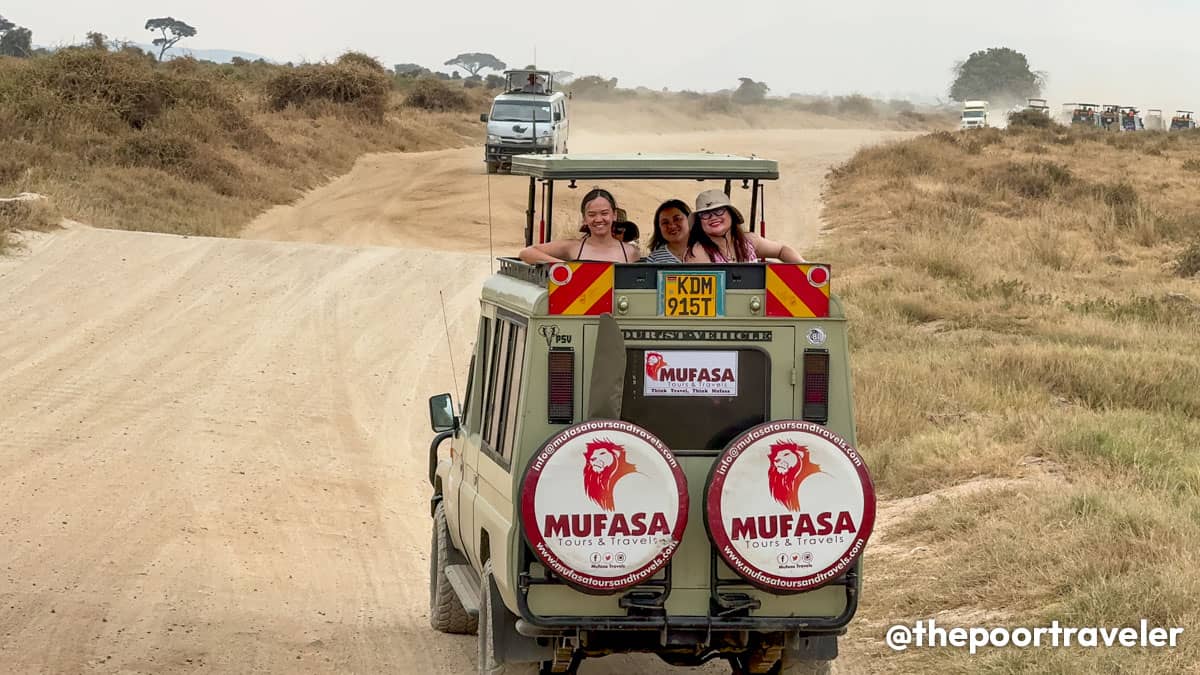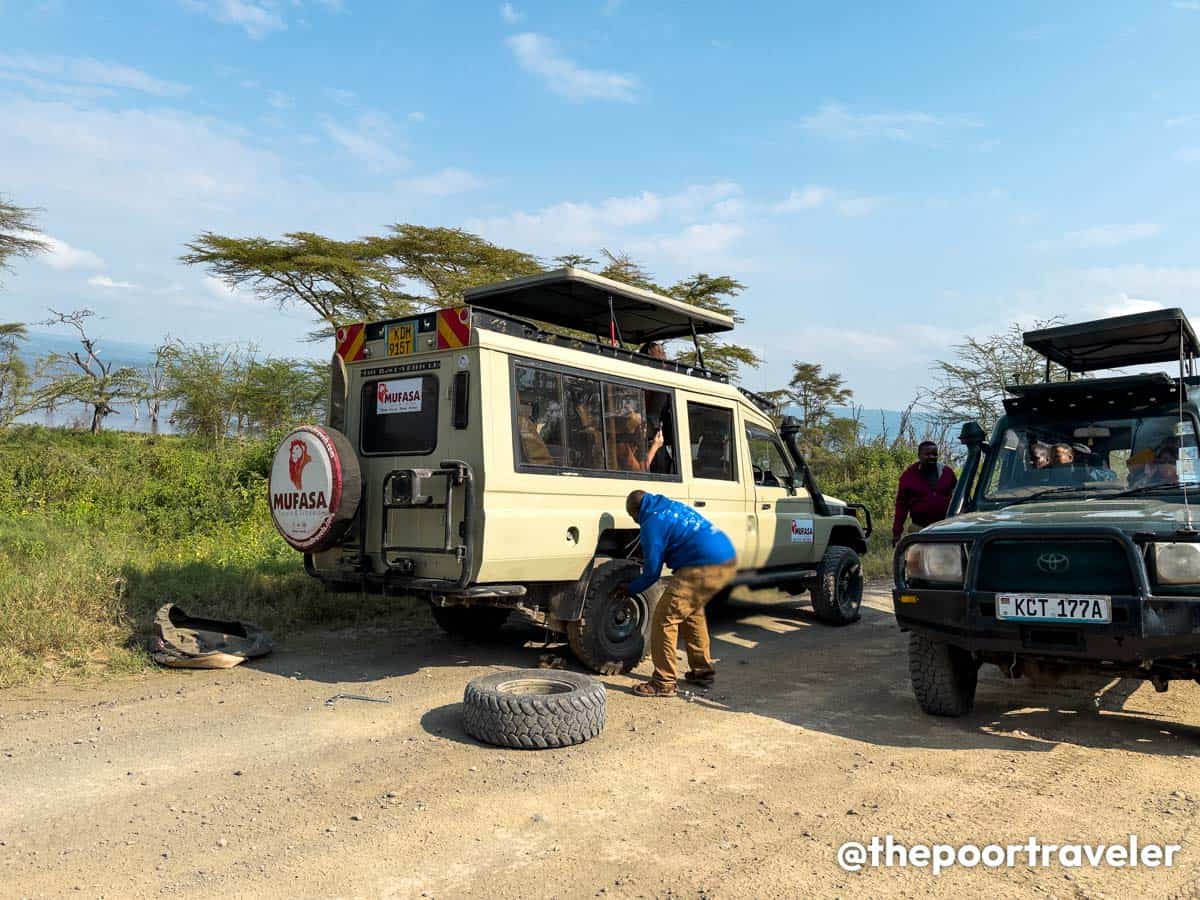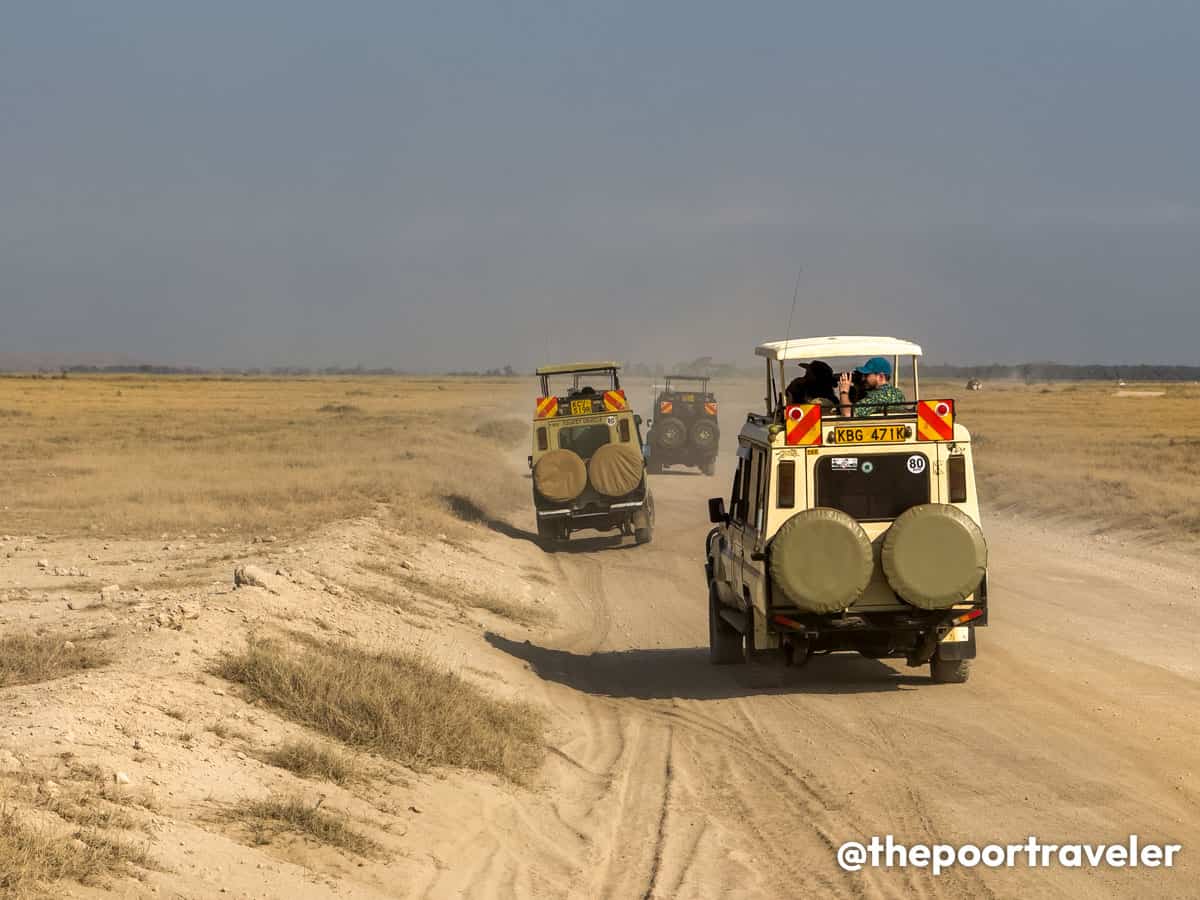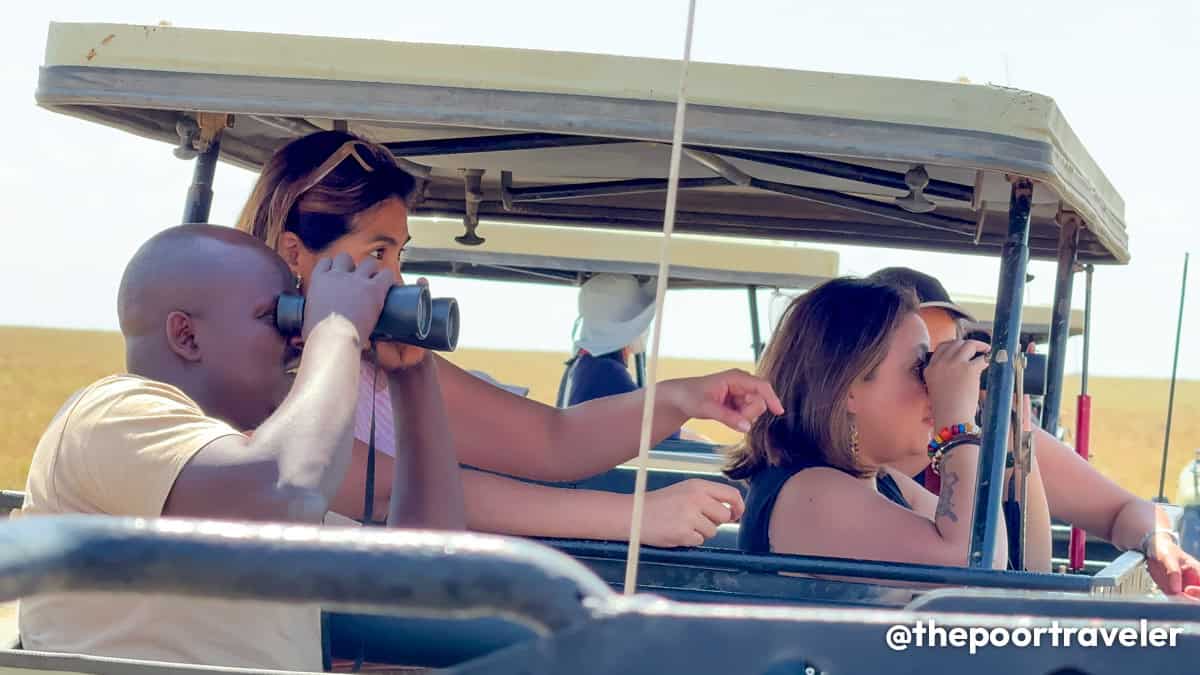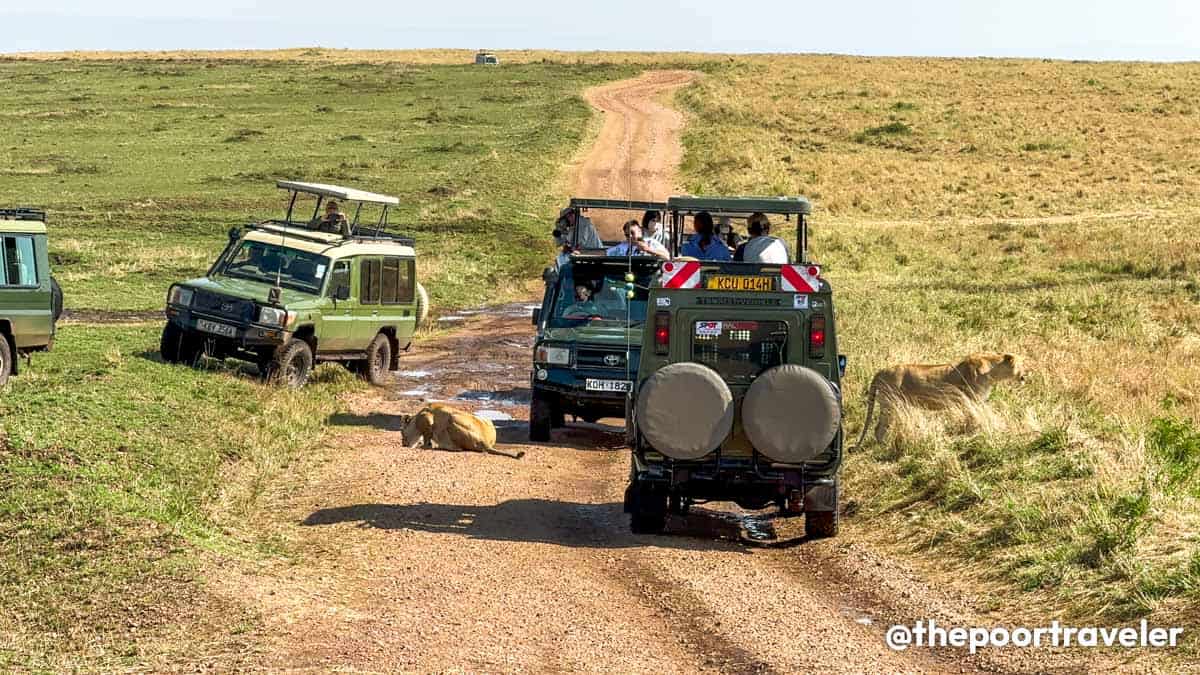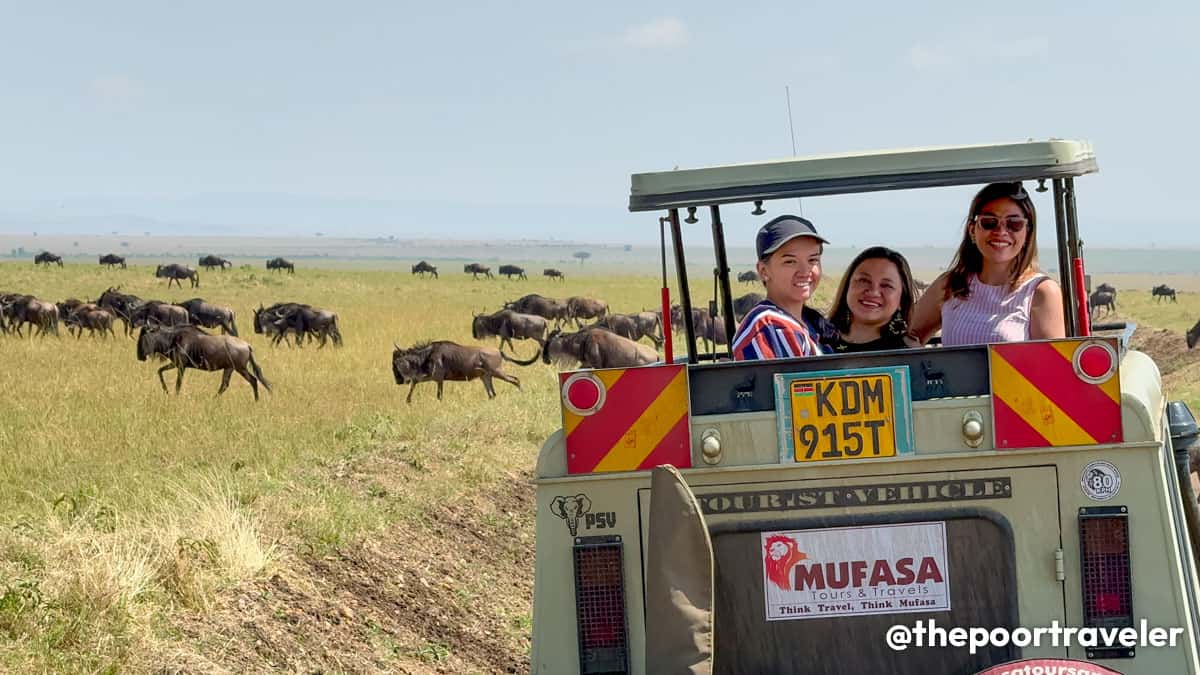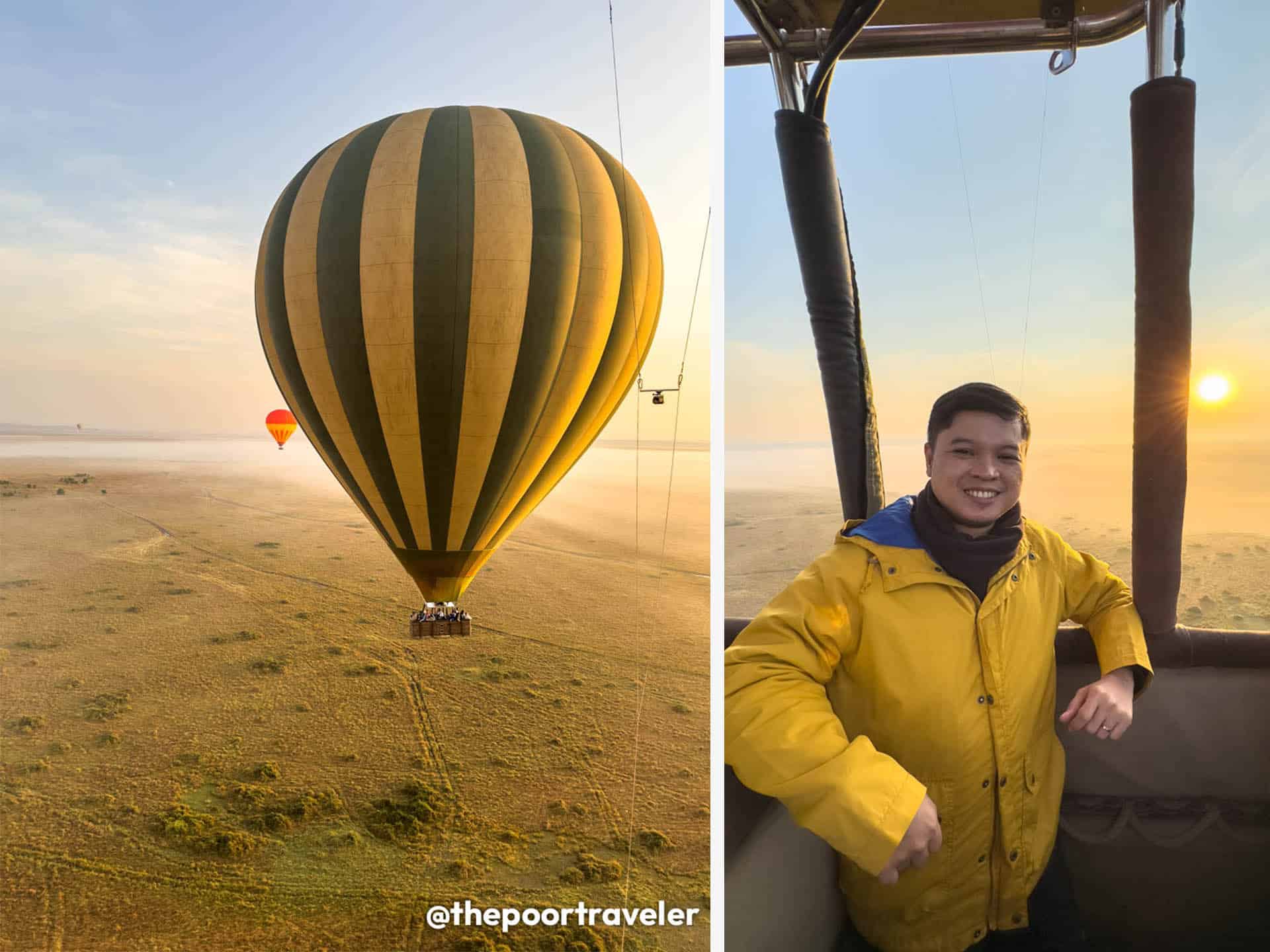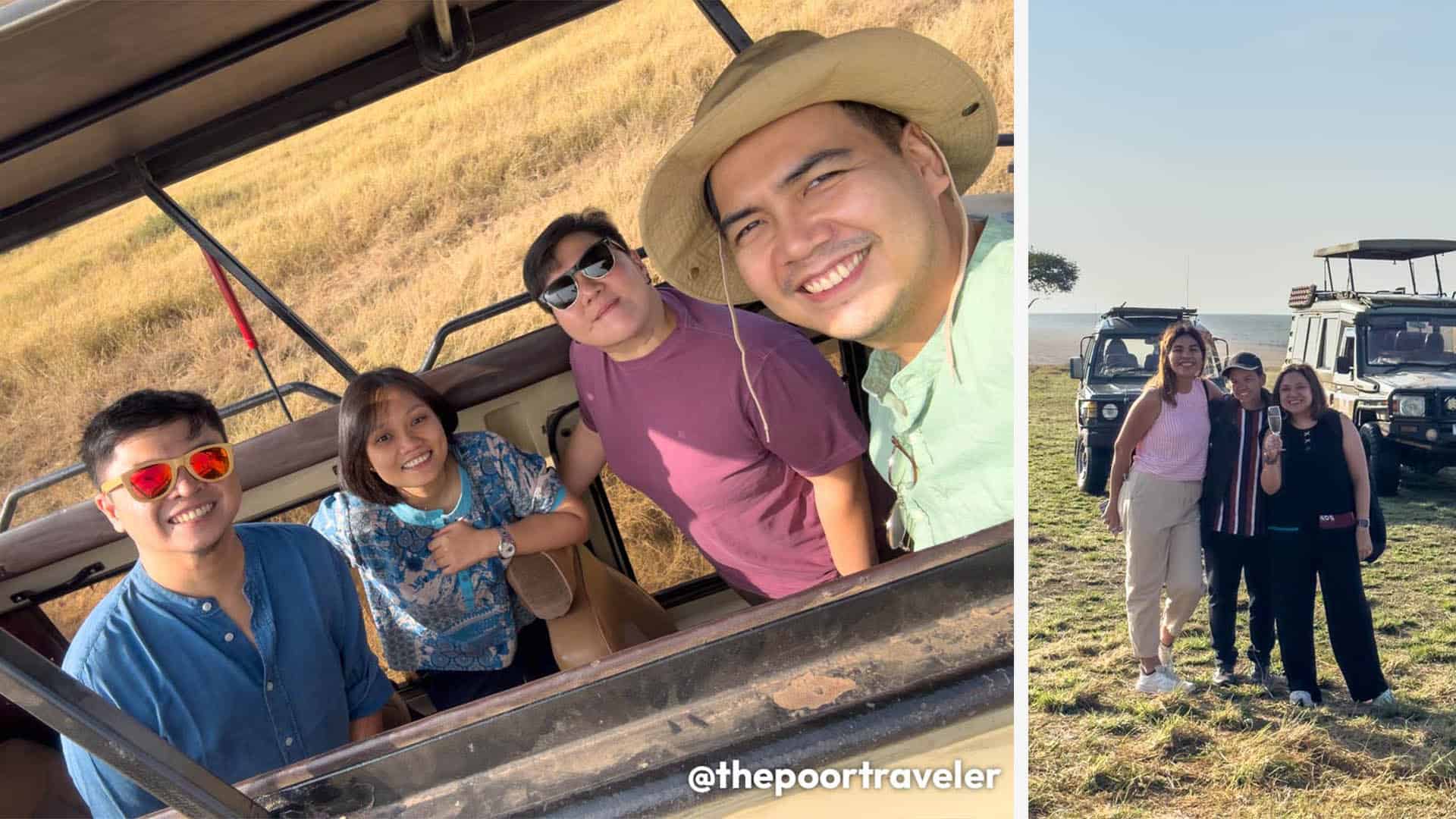If you’re part of my generation, you probably grew up watching Discover and National Geographic discoveries featuring the Great Migration and the continent’s big cats and crocodiles taking advantage of the movement. And if you’re like me, you probably have dreamt of going on an African safari at least once in your life. Well, that dream has just become a reality for me recently.

We’ve just wrapped up our African tour, making stops in four countries along the way: Kenya, Zambia, Zimbabwe, and South Africa. The more I look back, the more it becomes crystal clear that the highlights were definitely the safari drives!
But these tours are not easy and not like your ordinary sightseeing trip. They’re not the most affordable, either. So the fewer boo-boos, the better. It’s easy to approach a safari the same way you would any other trip. And that would be your first mistake. Safaris are vastly different. In this article, we’ll share with you some of the things you shouldn’t do and the mistakes to avoid when joining a safari!
1. Don’t fall for scams.
The internet is rife with accounts of people who got scammed by bogus tour operators, and many of them are still pretty recent. Some are honeymoon trips that were completely ruined by fraudsters who ran away with their money. And mind you, these safari tours are NOT cheap. And in most cases, you have to settle both the downpayment AND the balance before you even arrive in Kenya.
To be honest with you, up until I saw our first lion, I was still having doubts. You see, I didn’t know anyone in Kenya AT ALL. And no one in my circle had any recommendation or contact, so I barely relied on reviews on online forums and Facebook groups. In retrospect, I realized just how risky it was. Thankfully, the company we booked was legit and we still had a grand time.
At this point, you’re probably asking, “So with what company did you book?” And the answer to that is Mufasa Tours and Travels. This was its initial quote for a 6-day safari for eight (8) travelers:.
USD 1510 (P85,000) per person
5 nights, Kenya only (budget)
inclusive of the following:
- vehicle (van good for 8 pax)
- driver/guide fee
- all national park entrance fees
- all resort accommodations (budget)
- all meals (breakfast, lunch, and dinner)
- plus airport pickup and dropoff
This is the most basic option – budget accommodations, and the vehicle to be used was a van that could accommodate up to 8 pax.
But some people on our group backed out and we needed to find replacements, and by the time everything was finalized, some of the original target resorts were already fully booked. We also upgraded to two 4×4 land cruisers for a more comfortable experience. In the end, we all paid USD 1,650 (roughly PHP 93,000) per person.
Note that flights to and from Kenya are not yet included. That only covers the safari.
Imagine, if we were scammed, we would have lost USD 1650/person or a total of 13,200 USD (P745,000) for all 8 of us. That’s A LOT OF MONEY!
So yes, make sure you’re transacting with a legit operator.
By the way, this is NOT sponsored by Mufasa. We paid for our safari in full.
If you’re from the Philippines and you prefer dealing with a local travel agency instead, pick a reputable one! Established agencies like Constellation Travels offer Kenya Tours, too.
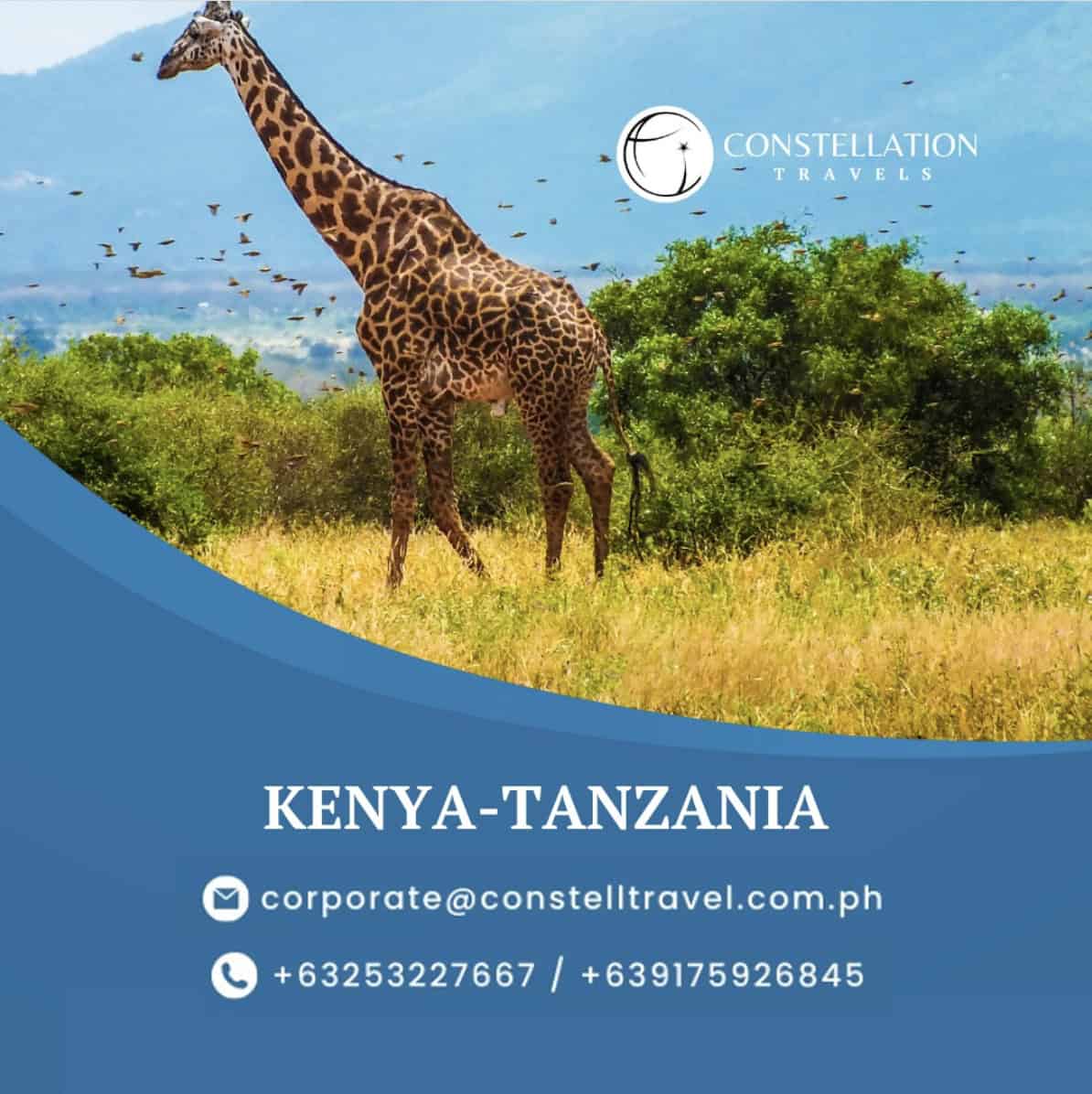
Of course, it’ll be pricier especially by default because they bundle Kenya and Tanzania and they usually pick more upscale resorts, but most of these tours can be customized. You can request for cheaper accommodations or simpler or shorter itineraries.
But the great thing about booking with Constellation Travels or other reputable local agencies is, they are registered here in the Philippines, so if something happens, someone will be accountable for you here. And you also have easy access to customer support. For inquiries, contact this number or email them at this address.
CONSTELLATION TRAVELS, INC.
Email: [email protected]
Landline: +63253227667
Mobile: +639175926845
Again, to be clear, our Kenya safari was not sponsored by Constellation Travels. But we have a good relationship with them because they help us update our visa posts on our website. This is for those who don’t want to deal with all the planning.
2. Don’t expect a smooth ride.
And we mean this in many ways.
Not all national parks are the same. In Kruger National Park in South Africa, most major roads are paved. But in Kenya, calling the roads bumpy is a major understatement, especially in Masai Mara. As you seek out wildlife, expect to be shaken quite a bit. The guides even have a term for it, “African massage.” But it’s anything but relaxing.
By smooth ride, we also mean figuratively. It’s not uncommon for tires to go flat and wheels to get bogged. It’s part and parcel of a safari. It comes with the territory.
And even before the trip, accept that things will not always go as planned and some aspects of the trip are out of your control. Most tourists join an Africa safari with one goal in mind: to see all of Africa’s BIG 5, considered the continent’s most iconic safari animals. These are:
- Lion
- Elephant
- Cape Buffalo
- Rhinoceros
- Leopard
The leopard is especially elusive. Your guides will do everything in their power for you to see them, but it is NOT guaranteed especially if you only have a few days. If you don’t spot them all, it’s OK. Just have a great time in the process!
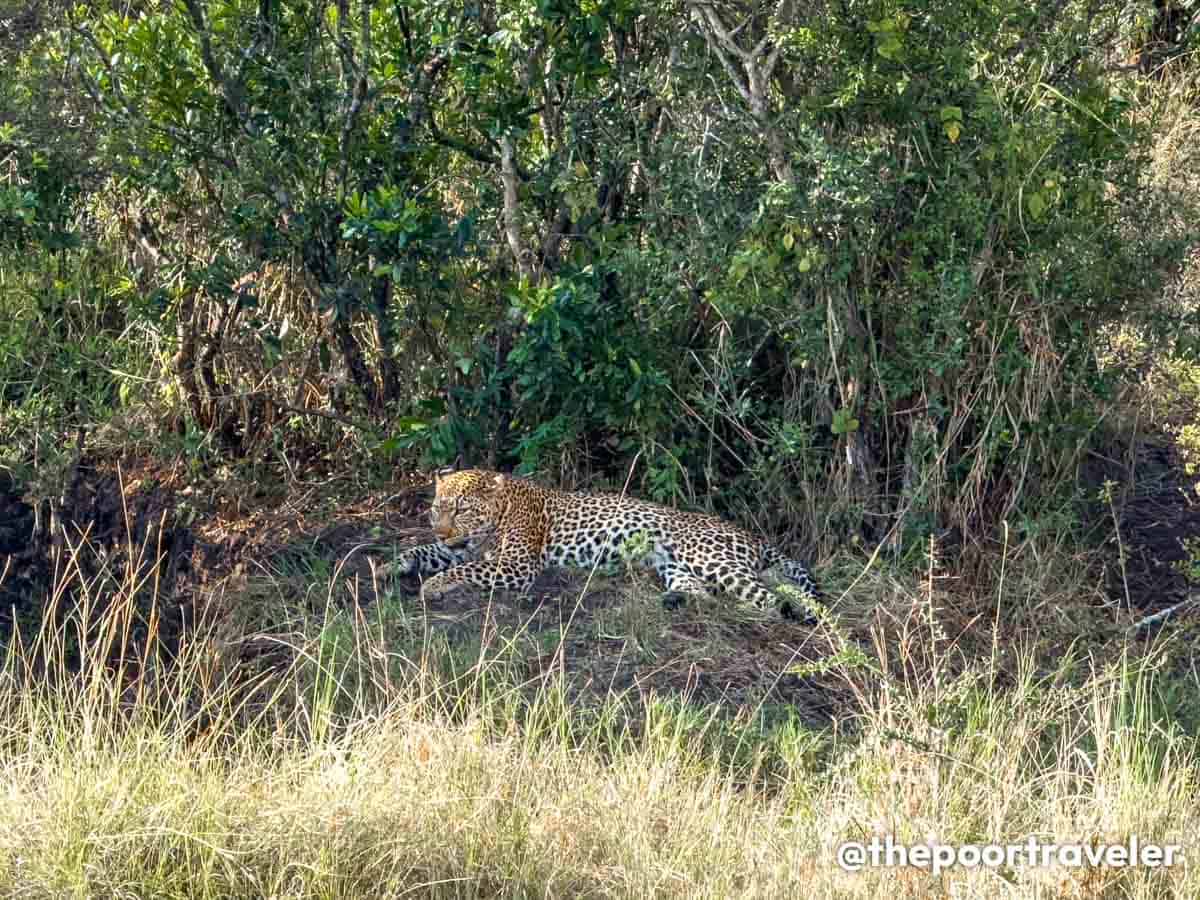
3. Don’t wear dark, white or inappropriate clothes.
When going on a safari, you’re encouraged to pack light and neutral-colored clothes. Light because it can get hot at mid-day even in cooler months. But not white. Some national parks are very dusty. Case in point, Amboseli National Park. Amboseli in Swahili literally means salty dust. And yes, it’s so dusty, your clothes could easily turn khaki or brown by the end of the day.
I was wearing light colored pants, not white, but lighter than khaki, when I stumbled and fell near a waterfall in Nakuru, and it inadvertently got brown spots.
Neutrals or earth tones are recommended because bright colors are said to scare off wildlife and dark clothing typically attracts insects. I’m not a scientist, so I don’t know. But anecdotally, I can say the latter bit is true in my experience.
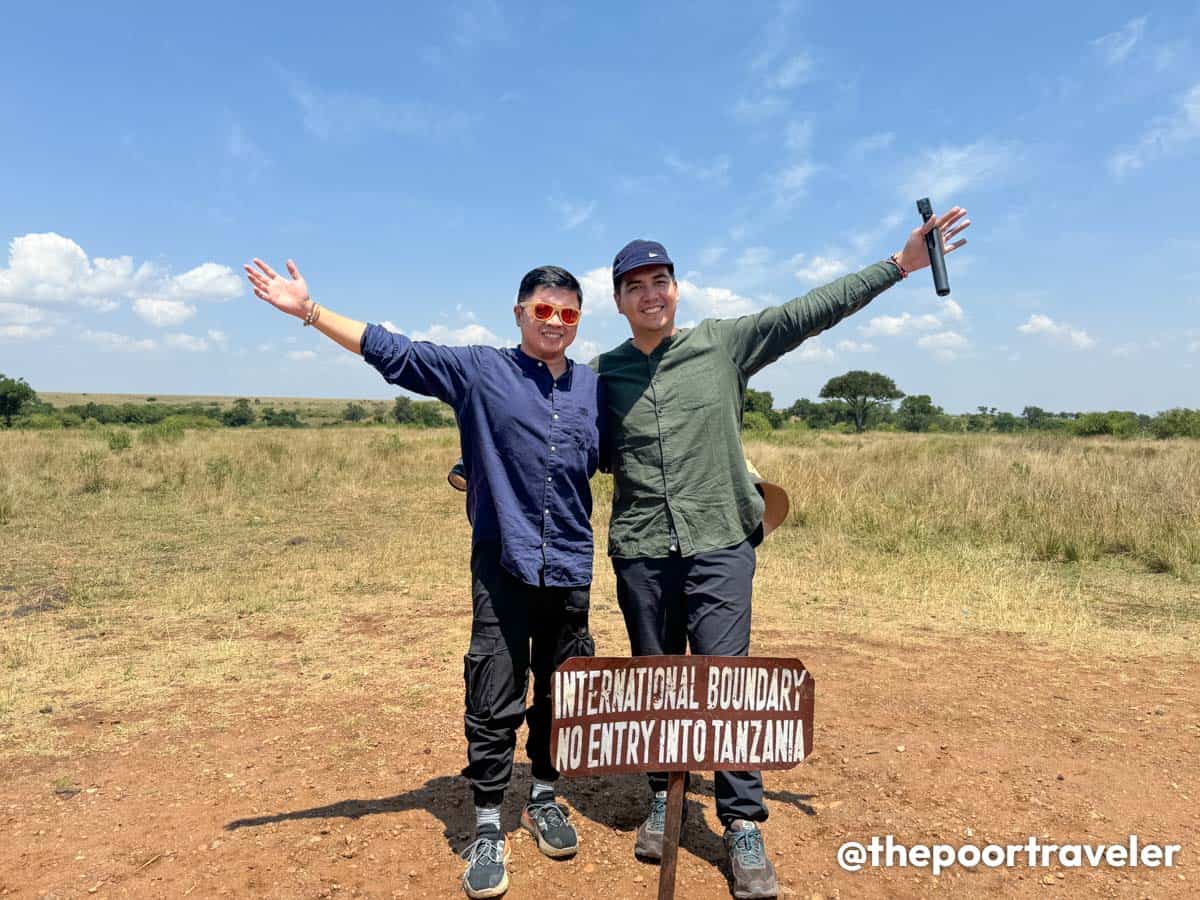
Half of my wardrobe is black and blue, which are said to be especially attractive to flies. And there was a day – I think this was in Masai Mara — when both my friend Row and I were wearing black, and we were the only ones complaining about flies, while the rest claimed they were not bugged at all.
Which brings me to this: WEAR COMFY PANTS or TROUSERS. Not tight and not too loose. It will protect your legs from bugs.
4. Don’t overpack or underpack.
In most cases, your luggage will be stowed in the same vehicle that you will be using. Most vehicles have a space in the back for luggage, but if you’re a big group, some of the suitcases may be placed on the seats. So don’t overpack. Besides, in our experience, even the budget resorts are well-equipped.
But don’t underpack either. Here are some things that we urge you to bring:
- Binoculars. Ask your tour operator if they would be providing binoculars or if they have one they could rent out to you. Otherwise, bring your own.
- Hat. Although you’ll be spending most of your time inside the vehicle, it’s open-top so some of the rays still get in.
- Light jacket or windbreaker. While it can get hot during the day, nights are often chilly in the parks.
- Insect-repellent lotion. Protect yourself from mosquitoes and other bugs.
Speaking of mosquitoes…
5. Don’t ignore vaccination requirements.
If you’re coming from the Philippines, proof of vaccination is NOT required to enter Kenya. But according to the World Health Organization, Kenya is one of the countries with risk of yellow fever transmission, so it’s best to be vaccinated before going and secure an International Certificate of Vaccination (ICV).
Is yellow fever vax required to enter South Africa, Zimbabwe or Zambia? If you’re coming directly from Europe, US, or Asia including the Philippines, NO, you won’t need an ICV.
BUT if you’re visiting or transiting in a country that is considered a yellow fever risk, then you’ll need proof of vaccination.
For example, our itinerary is KENYA > ZAMBIA > ZIMBABWE > SOUTH AFRICA.
I didn’t need to present my ICV when entering Kenya. But because KENYA is a yellow fever risk country and I visited it first, I was asked to present my ICV before boarding my flight to and at the Immigration counters in Zambia, Zimbabwe, and South Africa.
But let’s say you’re flying from Manila to South Africa, with a layover in Dubai UAE or Doha, Qatar, no need for an ICV.
We have a separate tutorial video on how to get yellow fever vaccination certificate in the Philippines.
But these policies change over time so always double check with the authorities to be absolutely certain.
In many African countries, malaria is also a concern. So if you could get a vaccine shot or prophylaxis, do so.
6. Don’t dismiss the rules and warnings.
When joining a safari, you’ll be embarking on an adventure into the wild. You’re the visitor and it is the animals’ territory. It comes with a risk, so you better listen to your guides and heed their warnings. It’s for your own safety.
If your guide says you can’t get off the vehicle, DON’T do it. If there is a lion just outside the vehicle, don’t let your limbs or head dangle from the window. Animals like lions and even something as gentle-looking as elephants or giraffes can be unpredictable.
If you’re staying at a camp within a national park, follow their policies. We once stayed at a riverside camp in Zimbabwe where going too close to the river is highly discouraged because of crocs and hippos. Or going out of our tent at night, even if it was just to go to the reception because if we’re unlucky, we could easily turn from guest to prey.
7. Don’t be too loud.
I read prior to the trip that too much noise frighten the game away. And it was proven true during our visit.
Fortunately, most of us in our vehicle were introverted and generally quiet, so we would always catch a good look at the wildlife. But there was one group that was too loud and every time they arrived, the animals walk or run away. So if you want them to not leave and have more time admiring them at a good distance, just zip it! You don’t have to be completely silent! It’ll be hard to contain the awe, but don’t be too loud.
8. Don’t forget to tip your driver/guide.
Tipping your guide is highly encouraged.
Game drives, especially in Kenya, are not easy. It’s hard enough for the passengers, let alone for your drivers. And they will be driving you around the entire day for days, just so you could have the best experience. So refrain from antagonizing or annoying your driver-guides. Don’t be rude or mean. And be considerate.
We were told that these are the standard or expected tips for safari guides:
- KENYA SAFARI GUIDE
USD 10-20 per day per person - SOUTH AFRICA SAFARI GUIDE
ZAR 150-200 per day per person
(higher for luxury lodge game drives)
Camp staff like bell boys, even the back of the house, are also often tipped, especially in South Africa, which seems to have a strong tipping culture.
So yes, make sure you have enough cash for tipping!
Our guide in Kenya, Dennis, once told us that he loved our group because we’re just so chill, weren’t demanding at all, and best of all, that we took our time having lunch, which, according to him is great for them because they also get to rest longer and recharge.
Fun fact: Drivers and guides work together to find the BIG 5. You’ll notice them talking on the radio or chatting with another driver as they pass each other. They’re actually sharing scoops. When someone spots a leopard somewhere, they share it with the others, like a wide web of information.
9. Don’t scrimp too much.
I know this tip is rich coming from a website called “The Poor Traveler.” But the reality is, for many of us, a safari trip is a once-in-a-lifetime experience, so make the most out of it. Enjoy it as much as you could. The last thing you want is be miserable!
So when you’re given a choice between a packed van and a smaller group in a land rover, consider the experience. If you’re a big group sharing one vehicle, a few of you may not have a window view.
And if you could afford it, book that hot air balloon ride. Yes it’s expensive, but it is magical and truly unforgettable.
That said, don’t splurge all the time. Know that some stops may be tourist traps, and it would do you good if you also learn how to say no sometimes.
10. Don’t keep bad company.
I know this sounds more like a life lesson than a travel tip, but this is crucial! Whether or not you’ll enjoy your safari heavily depends on the people you’ll be traveling with, especially if it’s a 5- to 10-day tour.
You’ll be with them for most of the day. You’ll be sharing a vehicle, meals, and most of the activities. Our guides once shared with us that many of their guests who are couples on a honeymoon or celebrating an anniversary often end up in bickering or in an awkward fight for a whole lot of reasons.
We always say that travel is a test of relationship – be it with a romantic partner, family or friends – and a multi-day safari tour takes the test to another level. So to make sure you’re gonna have the time of your life, choose companions that you truly like and love.
That’s all for now. Remember, plan smart, travel safe, and make every trip WORTH IT!
More Tips on YouTube ⬇️⬇️⬇️
Is this post helpful to you?

https://www.thepoortraveler.net/african-safari-mistakes/”>
#Top #AFRICAN #SAFARI #MISTAKES #Avoid #Kenya #South #Africa

